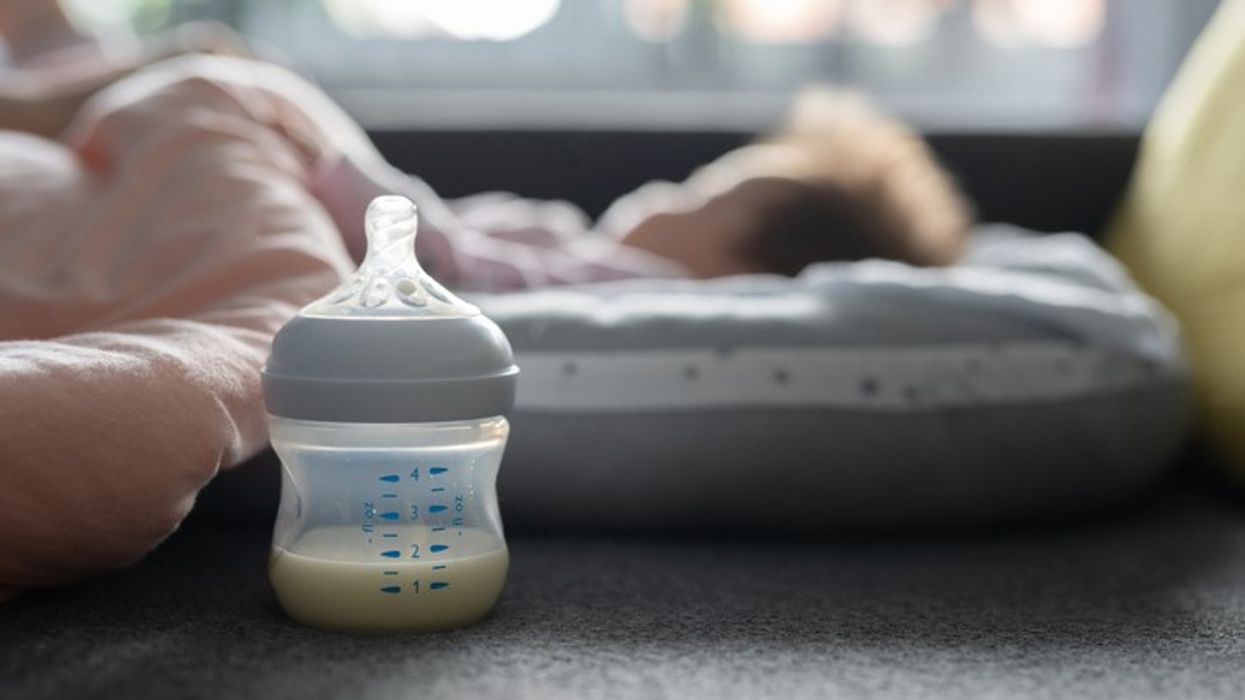The formula milk industry's marketing tactics are exploitative and undermine breastfeeding, according to a three-paper series published in The Lancet which calls for urgent clampdowns to tackle misleading claims and political interference.
The papers suggest that industry influence - which includes lobbying against vital breastfeeding support measures - seriously jeopardises the health and rights of women and children.
"This new research highlights the vast economic and political power of the big formula milk companies, as well as serious public policy failures that prevent millions of women from breastfeeding their children," said Professor Nigel Rollins, a scientist at the World Health Organization (WHO) and author of a paper on formula milk marketing.
"Actions are needed across different areas of society to better support mothers to breastfeed for as long as they want, alongside efforts to tackle exploitative formula milk marketing once and for all," Rollins said in a statement.
Given the significant contributions of breastfeeding to people's health, the Lancet series recommends much greater support for breastfeeding within healthcare and social protection systems -- including guaranteeing sufficient paid maternity leave.
Globally, only around 1 in 2 newborns are put to the breast within the first hour of life while fewer than half of infants under six months are exclusively breastfed, as per WHO recommendations.
Currently, around 650 million women lack adequate maternity protections, the papers note.
Misleading marketing claims and strategic lobbying from the dairy and formula milk industries further add to the challenges parents face, by increasing anxiety around breastfeeding and infant care.
The World Health Assembly developed the International Code of Marketing of Breast-milk Substitutes (the Code) in 1981 and several subsequent resolutions.
However, intensive marketing of infant formula continues largely unabated, with sales from these products now approaching USD 55 billion a year, WHO said in a statement.
The first paper in the Lancet series documents how misleading marketing claims directly exploit parental anxieties around normal infant behaviours, suggesting that commercial milk products alleviate fussiness or crying, for instance, that they help with colic, or prolong night-time sleep.
The authors stress that, when mothers are appropriately supported, such parental concerns can be managed successfully with exclusive breastfeeding.
"The formula milk industry uses poor science to suggest, with little supporting evidence, that their products are solutions to common infant health and developmental challenges," said Professor Linda Richter from the University of the Witwatersrand, South Africa.
"This marketing technique clearly violates the 1981 Code, which says labels should not idealise the use of formula to sell more product,” Richter said.
The series explains how formula milk marketing exploits the lack of support for breastfeeding by governments and society, while misusing gender politics to sell its products.
This includes framing breastfeeding advocacy as a moralistic judgment, while presenting milk formula as a convenient and empowering solution for working mothers. The series further draws attention to the power of the milk formula industry to influence national political decisions and interfere with international regulatory processes.
In particular, the dairy and formula milk industries have established a network of unaccountable trade associations and front groups that lobby against policy measures to protect breastfeeding or control the quality of infant formula.
In addition to ending exploitative marketing tactics and industry influence, broader actions across workplaces, healthcare, governments, and communities are needed to effectively support women who want to breastfeed so that it becomes a collective societal responsibility, rather than placing the onus on women, the authors said.
The authors particularly highlight the need to ensure women have adequate maternity protections assured by law, including paid maternity leave that aligns, at minimum, with the WHO-recommended duration of six months for exclusive breastfeeding.
- PTI




